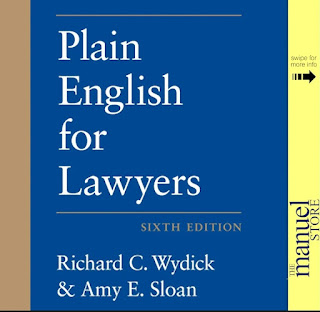Accused pleads guilty to a capital offense | Court's duty |
| SC: The plea of guilt made by the accused does not relieve the prosecution of the duty to prove the guilt of the accused beyond reasonable doubt |
 |
| SHOP HERE |
When the accused pleads guilty to a capital offense, the court shall conduct a searching inquiry into the voluntariness and full comprehension of the consequences of his plea and [shall] require the prosecution to prove his guilt and the precise degree of culpability. The accused may present evidence in his behalf[.]
 |
| SHOP HERE VOL. I VOL. II Again, in the 1917 case of U.S. v. Jamad (Jamad), this Court noted that "[notwithstanding the plea of 'guilty,' several witnesses were examined, under the well-settled practice in this jurisdiction which contemplates the taking of additional evidence in cases wherein pleas of 'guilty' are entered to complaints or information charging grave crimes, and more especially crimes for which the prescribed penalty is death." Hence, the following guidelines were adopted: |
 |
| SHOP HERE |
We may say then, in response to the request for a ruling on this subject by the Attorney-General:
(1) The essence of the plea of guilty in a criminal trial is that the accused, on arraignment, admits his guilt freely, voluntarily, and with full knowledge of the consequences and meaning of his act, and with a clear understanding of the precise nature of the crime or crimes charged in the complaint or information.
 |
| SHOP HERE! |
 |
| SHOP HERE |
 |
| 7 in 1 Premium Maca Root Capsules na may Premium Ginseng, Tribulus, at Higit Pa 8050 mgEq - Natural Energy, Performance at Mood Support - 120 Capsules SHOP HERE! |
 |
| BBM BUWIS BAYARAN MO SHIRT SHOP HERE! |
 |
| adult magazine SHOP HERE |
 |
| SHOP HERE |
 |
| SHOP HERE |
Not infrequently indeed, an accused pleads guilty in the hope of lenient treatment, or upon bad advice, or because of promises of the authorities or parties of a lighter penalty should he admit guilt or express remorse. It is the duty of the judge to see to it that the accused does not labor under these mistaken impressions.''
 |
| SHOP HERE |
A searching inquiry likewise compels the judge to content himself reasonably that the accused has not been coerced or placed under a state of duress — and that his guilty plea has not therefore been given improvidently — either by actual threats of physical harm from malevolent quarters or simply because of his, the judge's, intimidating robes.
 |
| SHOP HERE |
Further, a searching inquiry must not only comply with the requirements of Sec. 1, par. (a), of Rule 116 but must also expound on the events that actually took place during the arraignment, the words spoken and the warnings given, with special attention to the age of the accused, his educational attainment and socio-economic status as well as the manner of his arrest and detention, the provision of counsel in his behalf during the custodial and preliminary investigations, and the opportunity of his defense counsel to confer with him.
 |
| 2023 Bar Exam Quiz Cards Reviewer for ₱150 - ₱500. |
These matters are relevant since they serve as trustworthy indices of his capacity to give a free and informed plea of guilt.
Lastly, the trial court must explain the essential elements of the crime he was charged with and its respective penalties and civil liabilities, and also direct a series of questions to defense counsel to determine whether he has conferred with the accused and has completely explained to him the meaning of a plea of guilty. This formula is mandatory and absent any showing that it was followed, a searching inquiry cannot be said to have been undertaken.
.jpeg) |
| ▶️ Watch here |
 |
| "The series that made thousands of lawyers." SHOP HERE |
LAW BOOK FLAGS / FILING TABS
 |
Bhe, para hindi kana malito, at madali mo siyang mahanap? Lagyan natin ng color |
 |
More @ https://shopple.co/Lex-curiae Visit |
The plea of guilt made by the accused
does not relieve the prosecution of the
duty to prove the guilt of the accused
beyond reasonable doubt |
 |
| SHOP HERE |
 |
| Watch HERE The reason for such rule is to preclude any room for reasonable doubt in the mind of the trial court, or the Supreme Court on review, as to the possibility that the accused might have misunderstood the nature of the charge to which he pleaded guilty, and to ascertain the circumstances attendant to the commission of the crime which may justify or require either a greater or lesser degree of severity in the imposition of the prescribed penalties. |
 |
| SHOP HERE |
 |
| SHOP HERE |
 |
| SHOP HERE MORE designs HERE |
What are your thoughts on on this topic? Please leave a comment in the section below. Thank you for your continued support and feedback.
 |
| Now is the time to upgrade your study table and establish a study environment. LZD: https://s.lazada.com.ph/s.6KeIS?cc SHP: https://go.shopple.co/spn8co |
 |
| No more overheating! LZD: https://s.lazada.com.ph/s.6KTde?cc SHP: https://go.shopple.co/spn8bx |
 |
| Phone screen cleaner |
 |
| SHOP HERE |
 |
| SHOP HERE |












Comments
Post a Comment